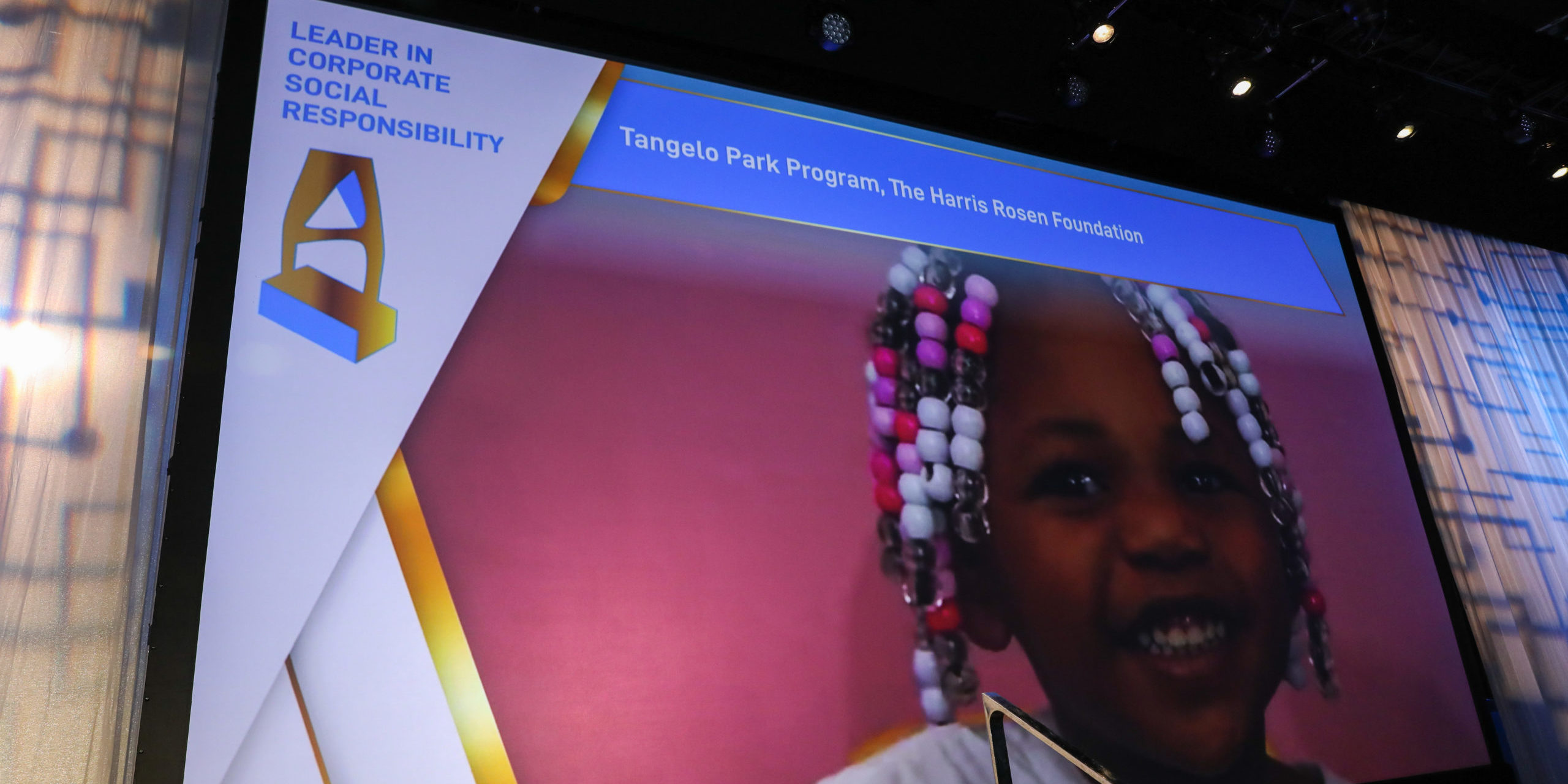By Kaitlin Dunn, Writer, Hospitality Sales & Marketing Association International (HSMAI)
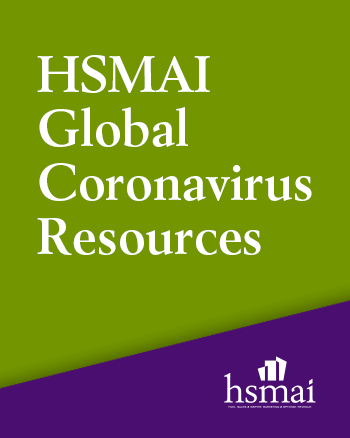 HSMAI hosted a Hotel Management Company Sales & Marketing Virtual Roundtable on April 30 that focused on the impact that COVID-19 is having on HMCs. After being in the trenches for more than a month, HMC sales and professionals shared their best practices, lessons learned, and ideas for continued success. Here are five of their suggestions, presented in their own words:
HSMAI hosted a Hotel Management Company Sales & Marketing Virtual Roundtable on April 30 that focused on the impact that COVID-19 is having on HMCs. After being in the trenches for more than a month, HMC sales and professionals shared their best practices, lessons learned, and ideas for continued success. Here are five of their suggestions, presented in their own words:
1. SUPPORT YOUR EMPLOYEES:
- “I think leadership matters. Making your people feel good about what they’re doing makes them work. It is an interesting dynamic seeing who goes out there and fights to get one room filled and who sits around saying, ‘Nothing’s coming in.’”
- “You need to remember to be positive and move forward and use your time well, but understand how the environment is impacting them personally. Do they have kids at home they have to take care of? It’s all over the place with the gains, but it begins and ends with great leadership and great compassion.”
- “We’re always talking about sprinkling sunshine on the guests and listening and finding creative solutions so they walk away feeling good, and we need to do the same for each other. We have to keep our employees’ energy high whether they’re on furlough or working with us shoulder to shoulder now.”
- “I think the biggest lesson I’ve learned is the power of personal interaction. We got so tied up with sending quick emails to clients, guests, employees — with everything slowing down, I’ve had the time to call all of my directors and check on them. It makes them feel like they’re more than just a number and they work harder when know they’re appreciated.”
2. GO BACK TO BASICS:
- “It’s given us some time to reevaluate what our sales and communications message is to our customers. The new message is softer, more emotional, and what the root of the business is in hospitality. We will take care of you, ensure you’re safe, and make sure your experience is extraordinary. That’s different than what we were pushing out a few months ago.”
- “When it comes to salespeople, the cream really does rise to the top. When you get back to basics, you understand persistence and aggressive selling are who you’re looking for. Now is the time you find out who your true salespeople are and who you want moving forward.”
- “We need to simplify and just focus on taking care of the customer.”
3. RETHINK YOUR PLANS:
- “It’s a good time to review processes and make sure what we’ve been doing is the best way of handling different situations. Revenue, sales, and marketing are working even closer together, and it has given us ways to rethink how we work together moving forward.”
- “We see the importance in having some type of plan in place in the event that there’s another economic downturn. Everyone was blindsided by this thing. We’ve made some SOPs to deal with things like this. We’re adding to our file on a daily basis and will have it for many years, so we can access that if something happens again.”
4. UNDERSTAND THE PERSONAL TOUCH:
- “We have been writing notes to all of our clients, top accounts or local rewards members, and it has paid off because it’s going to people’s homes. We’re getting phone calls saying that this blew them away. Not asking for business, just checking in with them and letting them know we are there for them when they are ready to come back.”
- “Our hotels in New York have been completely decimated. The power of teamwork in that environment has been amazing. We had one hotel underperforming, and every one of our employees participated in advertising on their social media pages. I gave a $100 gift card to who got the most likes, but they donated it to a healthcare worker in need. The stories I hear every day make my heart happy.”
- “Think outside the box to keep in touch personally with clients. It’s interesting to see how I’ve always complained about the younger generation communicating via email or texts instead of in person, but now we’re having to do what what they been telling us to do in order to communicate with clients, and we have to learn how to better incorporate that sales aspect.”
5. EMBRACE THE CONSTANT CHANGE
- “One of the things we did before this was constantly innovate, and this gave us a better space to do this. We’re not out of this yet to know all the changes, but the more we can ideate and test things, the better. At this point, we have nothing to lose. Fail fast and fail forward.”
- “This is very dynamic and changing at breakneck speed. I caution everybody to be very careful about making assumptions on service. There will be a temporary normal, but then normal. When there’s a vaccine, we’ll get back to handshakes and things will slowly come back. In general, we need to get through week-to-week right now.”
The virtual roundtable participants included representatives from these 22 hotel management companies:
Atlific Hotels; Chartwell Hospitality; Crescent Hotels and Resorts; CUSA Hotel Management; Dimension Development; GF Hotels & Resorts; HHM; Hostmark Hopitality; HVS Asset Management; LBA Hospitality; Library Hotel Collection; M&R Hotel Management; Marcus Hotels and Resorts; OTO Development; Prism Hotels & Resorts; Pyramid Hotel Group; Regency Hotel Management; Remington Hotels; Sound Hospitality Management; Staypineapple Hotels; Summit Hospitality Group; and Wright Investments.
For additional information, insights, and tools, visit HSMAI’s Global Coronavirus Resources page.


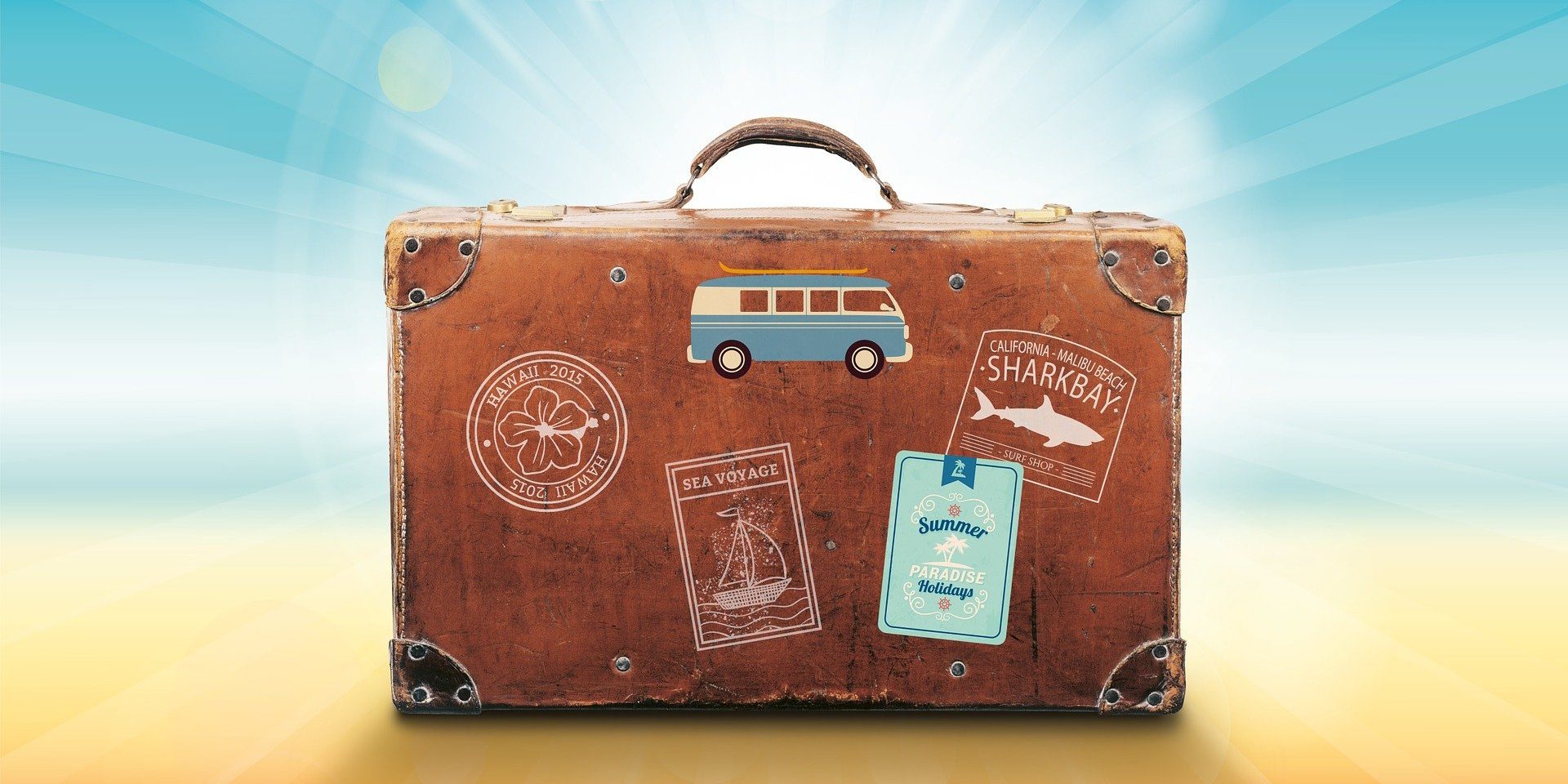



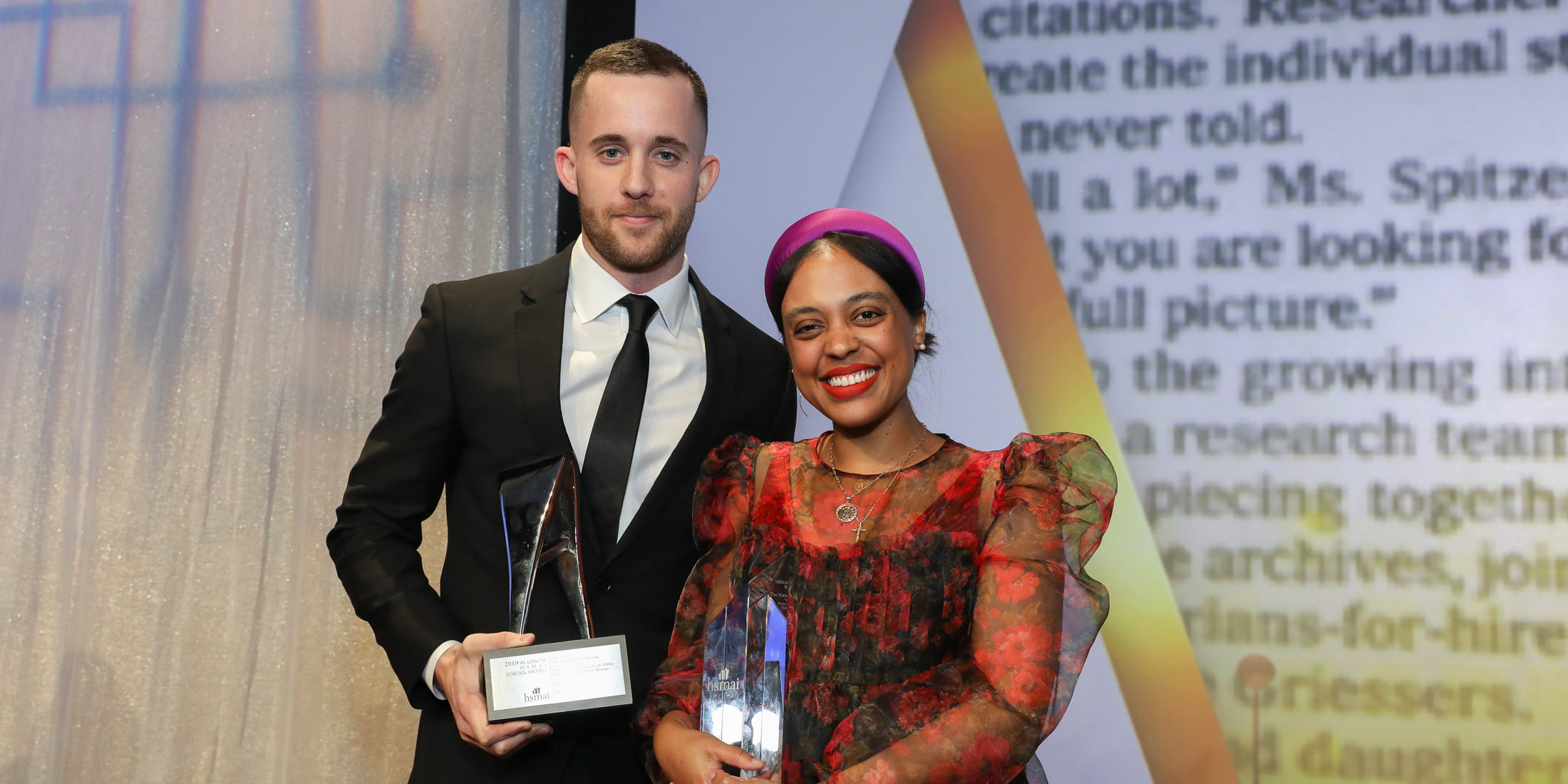
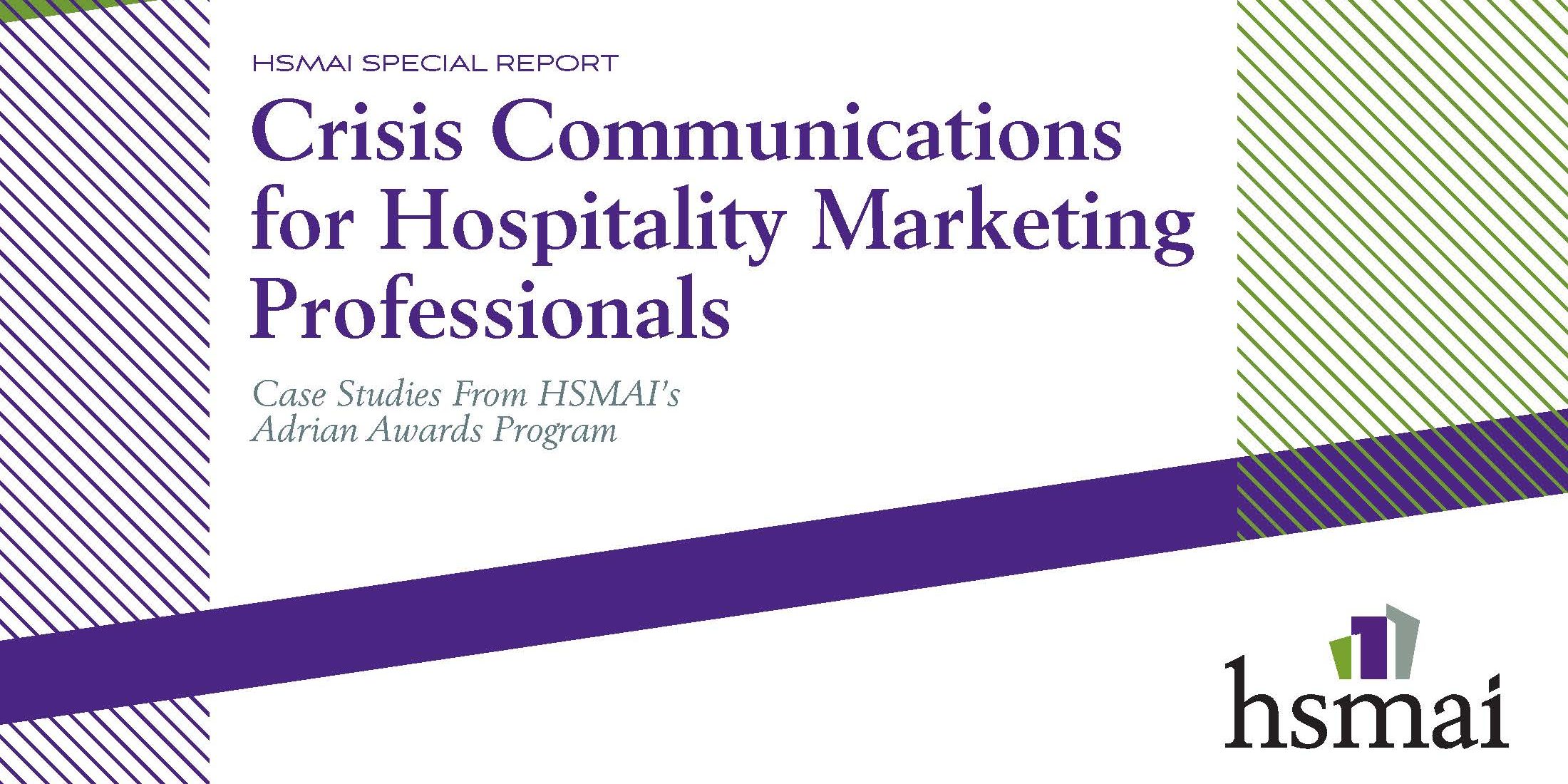
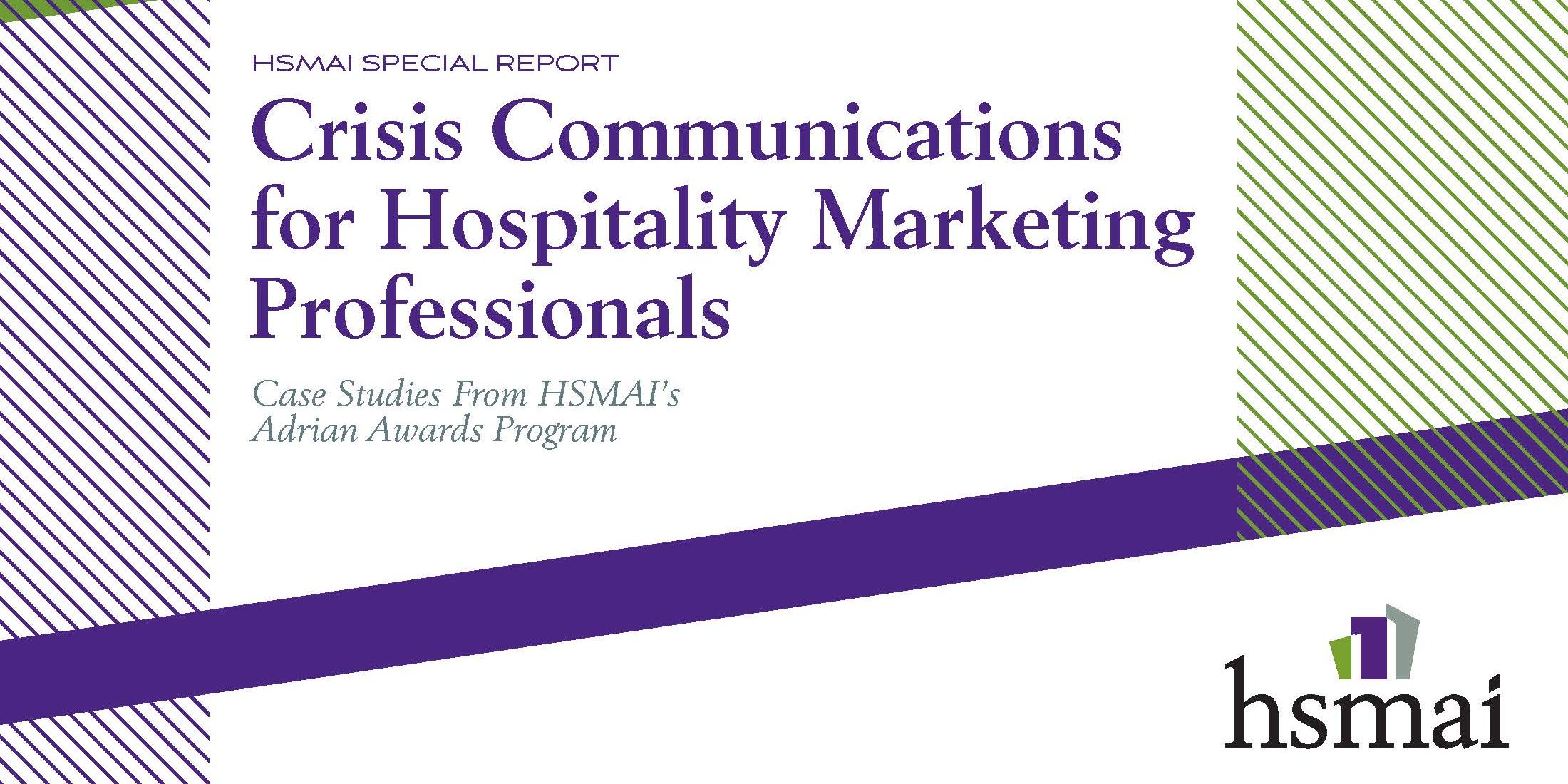

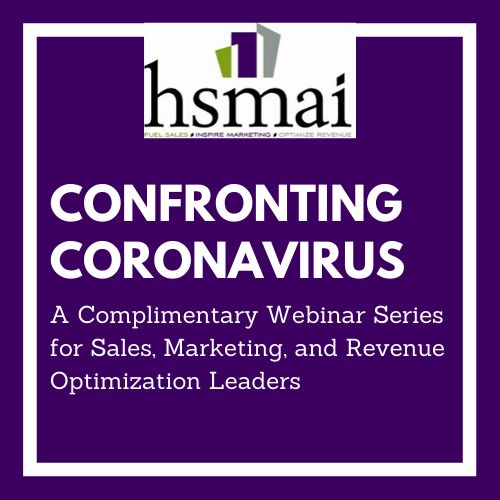 Hoteliers find themselves in an unknown environment as the coronavirus continues to spread and the situation evolves, creating a challenge when it comes to communicating with clients, partners, and other stakeholders. Laura Guitar, executive vice president and partner at rbb Communications, and Chris Davidson, executive vice president of insights and strategy at MMGY Global, shared their perspectives and tips for hospitality marketing professionals as part of a program in HSMAI’s Confronting Coronavirus webinar series called “Crisis Communication and Marketing Expert Insights” on March 12. Here are key takeaways from their presentation:
Hoteliers find themselves in an unknown environment as the coronavirus continues to spread and the situation evolves, creating a challenge when it comes to communicating with clients, partners, and other stakeholders. Laura Guitar, executive vice president and partner at rbb Communications, and Chris Davidson, executive vice president of insights and strategy at MMGY Global, shared their perspectives and tips for hospitality marketing professionals as part of a program in HSMAI’s Confronting Coronavirus webinar series called “Crisis Communication and Marketing Expert Insights” on March 12. Here are key takeaways from their presentation: